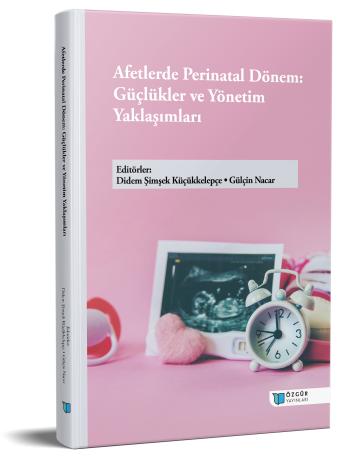
Perinatal Health in the Shadow of Disasters: Evidence-Based Findings, System Approaches, and Nursing Intervention Strategies
Chapter from the book:
Şimşek Küçükkelepçe,
D.
&
Nacar,
G.
(eds.)
2025.
Perinatal Period in Disasters: Challenges and Management Approaches.
Synopsis
Disasters pose significant health threats to women and newborns during the perinatal period, adversely affecting both maternal and neonatal outcomes. This chapter evaluates the impact of various disaster types including climate-related events (wildfires, floods, droughts), nuclear accidents, pandemics, and earthquakes on perinatal health, and offers evidence-based findings, system-based approaches, and nursing intervention strategies as solutions.
Environmental pollutants, psychological trauma, limited access to healthcare, and nutritional deficiencies triggered by disasters are linked to adverse perinatal outcomes such as low birth weight, preterm birth, stillbirth, and postpartum depression. Nursing services play a critical role in this process; the responsibilities of perinatal nurses in disaster preparedness, psychosocial support, and postnatal care are emphasized. Additionally, the necessity of developing localized and flexible intervention models within perinatal health systems, and integrating Maternal and Perinatal Death Surveillance and Response systems into disaster contexts, is underscored.
By providing a comprehensive analysis of the current literature on the perinatal impact of disasters, this chapter offers practical guidance for both practitioners and policymakers through a combination of evidence based nursing strategies, localized service models, and policy level recommendations.

